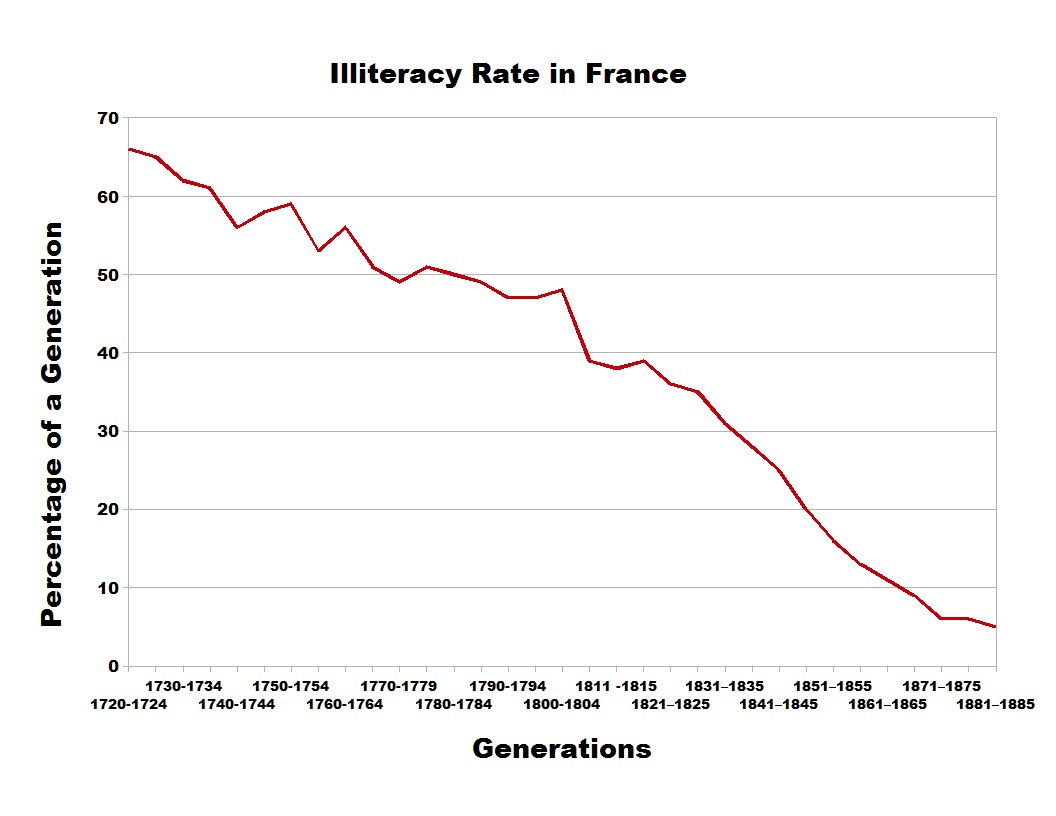Overall, general accessibility to books was difficult for two of the reasons you mention:
- The were extremely expensive to make
According to this source, we have the report of a book taking four weeks to copy (by hand, of course, and costing "53 shillings." At that same point in time, a pig was 10 pence, meaning that one book would have been equivalent to 636 pigs.
Likewise "In Byzantium, annotations from around 900 in the books of Arethas, Archbishop of Caesarea, value his copy of Plato at 21 nomismata and Euclid at 14 nomismata (perhaps not including the parchment). Manual workers in Byzantium were paid 6 to 10 nomismata per year."
That should put some perspective on the value of the materials and labor that were involved in making a book prior to the printing press.
- Literacy was extremely low
In England, anyone could avoid prosecution in trial (once anyway), by simply being able to quote Psalm 51. The thought, derived from Common Law, was that only clergy could read.
This graph below shows literacy rates in France in 1700s, and the remarkable shift in literacy. At the beginning of the graph, note that only 1 in 3 people could read - and this nearly 300 years after the invention of the printing press highlights how low literacy would have been.

Additionally, however, there was a practical decision made by the church:
- Catholic understanding of intrepretation
Finally, the institution of the church understood that people can misread Scripture. As such, dogmatic interpretation was reserved to priests. By focusing on those who could read and were trained to explain the Scriptures, the church imposed a sort of "quality control" on that reading. This was anathema to the Protestant reformers who subscribed to the notion of the Priesthood of All Believersthe notion of the Priesthood of All Believers
- And, don't forget that the Bible was intended to be read aloud
When the books of the Bible were written, the primary intention was that a trained reader would read the words out loud - It was akin to a playback device to be tied to a reader. Accusing the church of "control" of the Scriptures here would be like saying that the Catholic Church "controlled" sheet music because not everybody could play the piano. The truth is, reading a book was a skill not many bothered with.
